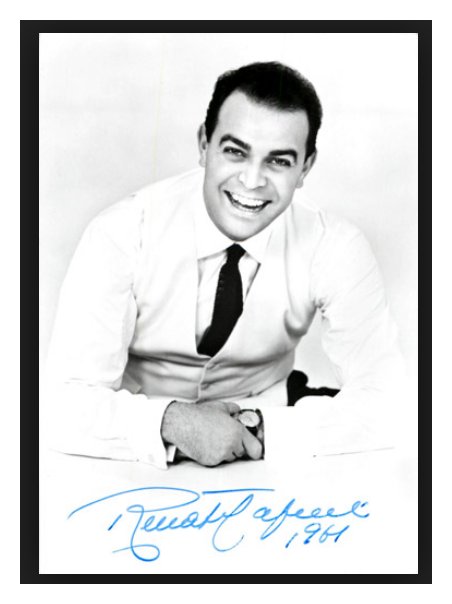

| The repertory of Renato Capecchi was
huge, encompassing hundreds of roles; as the years passed, he increasingly
concentrated on the buffo parts, and eventually undertook directorial assignments,
allowing him to share his theatrical fluency with other singers. Following studies in Lausanne and Milan (where he trained with Ubaldo Carozzi), Capecchi debuted as Amonasro (Verdi's Aïda) at Reggio Emilia in 1949. The very next year, he began an association with La Scala and, shortly thereafter, he was engaged by the Metropolitan Opera, making his debut in New York on November 24, 1951, as the elder Germont in La traviata. He remained on the roster there until 1954, and returned in 1975 as both singer and stage director. Meanwhile, he made his way on the concert stage, singing, for example, Lorenzo Perosi's La passione di Christo with the Wiener Singakademie at the Maggio Musicale Fiorentino (October 1, 1953). Capecchi sang numerous contemporary operas, including the premieres of Malipiero's La donna è mobile and Ghedini's Billy Budd and Lord Inferno. As late as 1988, he created the part of the Maestro di Cappella in Sylvano Bussotti's L'ispirazione at the premiere in Florence. He also participated in the Italian premieres of two twentieth-century Russian operas: Prokofiev's War and Peace (performed in 1953, the year of the composer's death), and Shostakovich's The Nose (1964) -- one of those prickly, satirical works that caused the composer so much political grief. Melitone in La forza del destino, an interpretation preserved in its early form on EMI's 1954 recording with Maria Callas and Richard Tucker, served as Capecchi's debut role at Covent Garden in 1962; in the same year he sang Mozart's Figaro at the Lyric Opera of Chicago. Capecchi's Dulcamara, Gianni Schicchi, and Bartolo became equally expert, and his Falstaff was a genuine hit at the Glyndebourne Festival in both 1977 and 1980. Teaching was accorded a growing place among Capecchi's activities long before his stage performances diminished. Numerous conservatories and studios throughout America and Europe engaged him for master classes and seminars, and he enjoyed success in producing programs for television. -- From a biography by Erik Eriksson
|
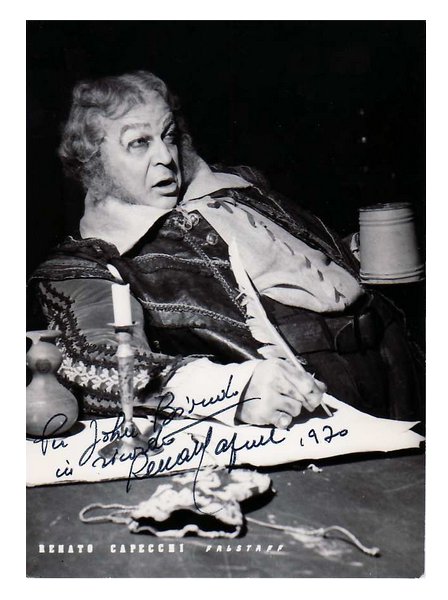 BD: Are there more visual gags when the opera is
not being done in the language of the audience, such as when an Italian opera
is Italian done here in Chicago?
BD: Are there more visual gags when the opera is
not being done in the language of the audience, such as when an Italian opera
is Italian done here in Chicago?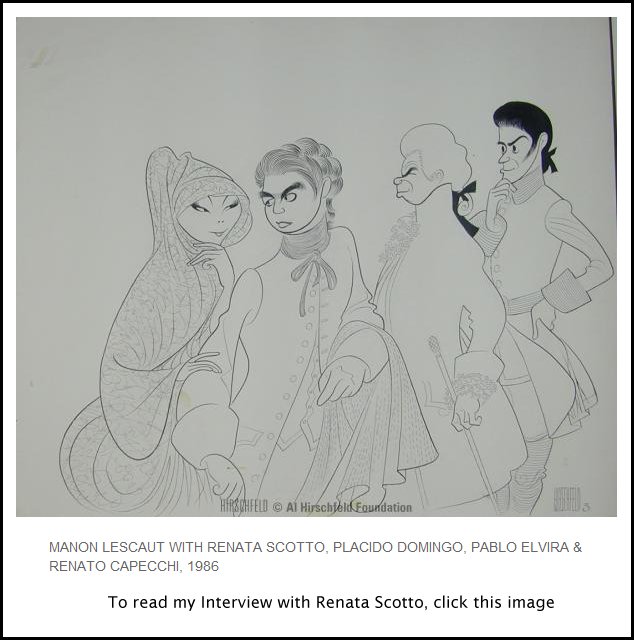 RC: It’s totally another show. The picture
is something small, so very seldom do they take the whole stage. With
all the possibilities that the technique gives us, you can do what you want
with opera. But when it comes to the details you can have very important
ideas. I was very happy to be there for rehearsals just to do all the
details of this kind — the flowers, the curtains, the
in and out of the sets, all of which makes the show.
RC: It’s totally another show. The picture
is something small, so very seldom do they take the whole stage. With
all the possibilities that the technique gives us, you can do what you want
with opera. But when it comes to the details you can have very important
ideas. I was very happy to be there for rehearsals just to do all the
details of this kind — the flowers, the curtains, the
in and out of the sets, all of which makes the show.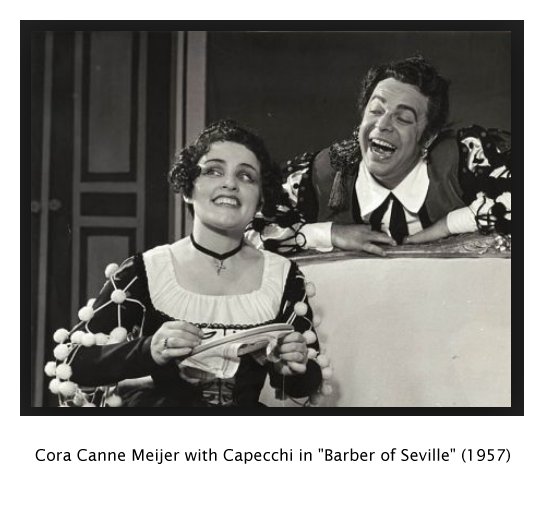 BD: There are the traditions of opera?
BD: There are the traditions of opera?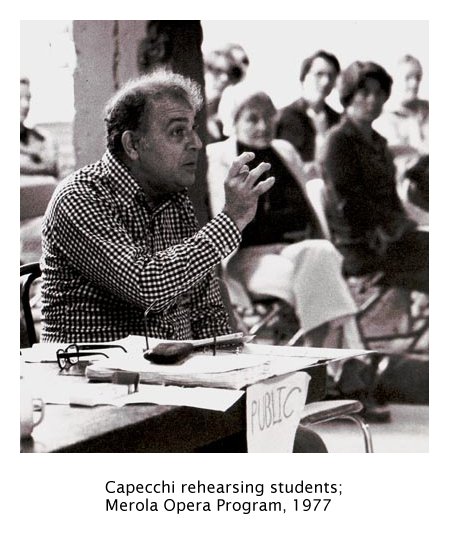 BD: Do the contemporary composers that you’ve sung
understand the voice?
BD: Do the contemporary composers that you’ve sung
understand the voice?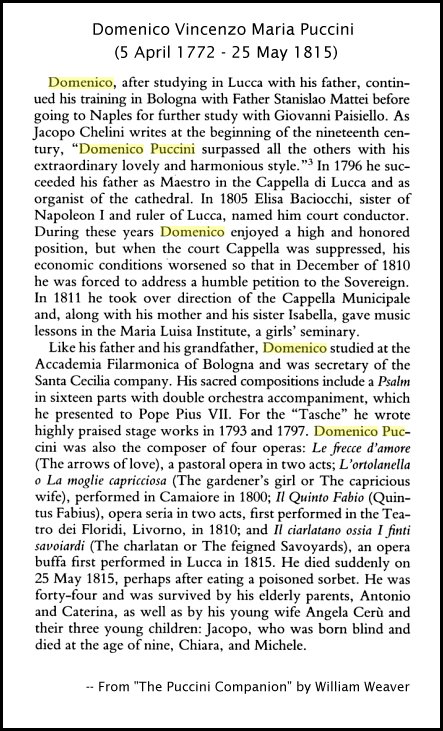 BD: So you would let all of these unknown operas
just gather dust on library shelves?
BD: So you would let all of these unknown operas
just gather dust on library shelves?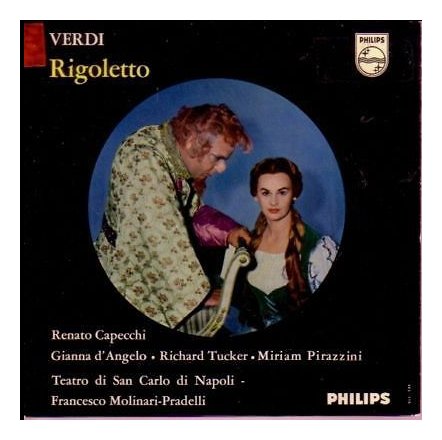 BD: Is that a frustration?
BD: Is that a frustration?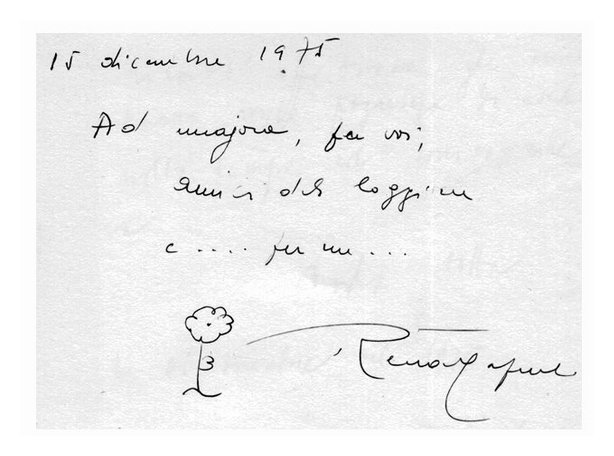
© 1986 Bruce Duffie
This conversation was recorded in his apartment in Chicago on October 3, 1986. Portions were broadcast on WNIB the following year, and again in 1988, 1993 and 1998. This transcription was made in 2014, and posted on this website at that time. My thanks to British soprano Una Barry for her help in preparing this website presentation.
To see a full list (with links) of interviews which have been transcribed and posted on this website, click here. To read my thoughts on editing these interviews for print, as well as a few other interesting observations, click here.
Award - winning broadcaster Bruce Duffie was with WNIB, Classical 97 in Chicago from 1975 until its final moment as a classical station in February of 2001. His interviews have also appeared in various magazines and journals since 1980, and he now continues his broadcast series on WNUR-FM, as well as on Contemporary Classical Internet Radio.
You are invited to visit his website for more information about his work, including selected transcripts of other interviews, plus a full list of his guests. He would also like to call your attention to the photos and information about his grandfather, who was a pioneer in the automotive field more than a century ago. You may also send him E-Mail with comments, questions and suggestions.